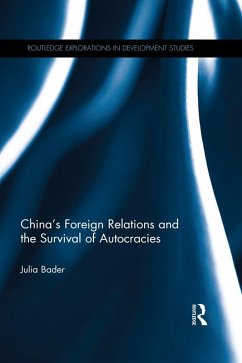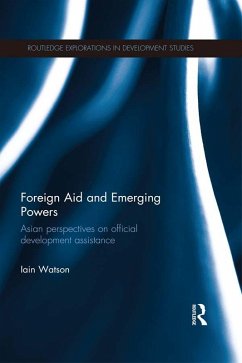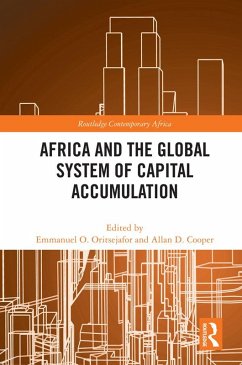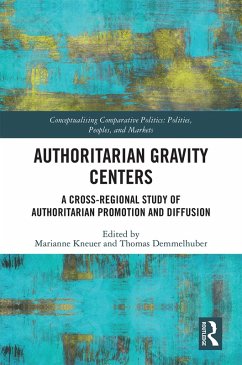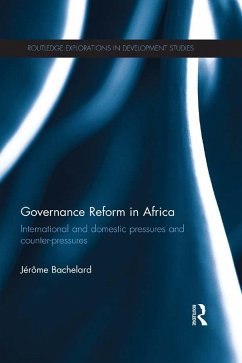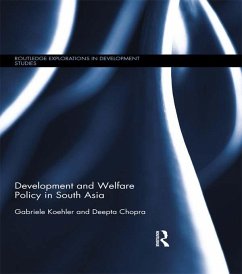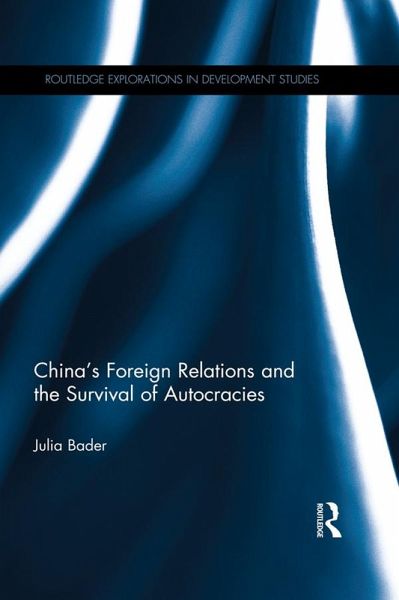
China's Foreign Relations and the Survival of Autocracies (eBook, ePUB)
Versandkostenfrei!
Sofort per Download lieferbar
45,95 €
inkl. MwSt.
Weitere Ausgaben:

PAYBACK Punkte
23 °P sammeln!
The Chinese government has frequently been criticized for propping up anti-democratic governments. This book investigates the rise of China as an emerging authoritarian power. By comparing China's bilateral relations to three Asian developing countries - Burma, Cambodia and Mongolia - it examines how China targets specific groups of actors in autocracies versus non-autocracies. It illustrates how the Chinese non-interference policy translates into support for incumbent leaders in autocratic countries and how the Chinese government has thereby profited from exploiting secretive decision making ...
The Chinese government has frequently been criticized for propping up anti-democratic governments. This book investigates the rise of China as an emerging authoritarian power. By comparing China's bilateral relations to three Asian developing countries - Burma, Cambodia and Mongolia - it examines how China targets specific groups of actors in autocracies versus non-autocracies. It illustrates how the Chinese non-interference policy translates into support for incumbent leaders in autocratic countries and how the Chinese government has thereby profited from exploiting secretive decision making in autocracies to realize its own external interests such as achieving access to natural resources. In a statistical analysis of the patterns of Chinese external cooperation and their impact on the survival of autocratic leaders, the book finds some evidence that China is more likely to target autocracies with economic cooperation. However, only some forms of bilateral interaction are found to increase the prospect of survival for autocratic leaders.
This important contribution to the understanding of both external factors of authoritarian endurance and China's foreign relations, a field of study still lacking systematic investigation, will be of great interest to students and researchers in Development Studies, Asian Studies, International Relations, and International Political Economy.
This important contribution to the understanding of both external factors of authoritarian endurance and China's foreign relations, a field of study still lacking systematic investigation, will be of great interest to students and researchers in Development Studies, Asian Studies, International Relations, and International Political Economy.
Dieser Download kann aus rechtlichen Gründen nur mit Rechnungsadresse in A, B, BG, CY, CZ, D, DK, EW, E, FIN, F, GR, HR, H, IRL, I, LT, L, LR, M, NL, PL, P, R, S, SLO, SK ausgeliefert werden.




